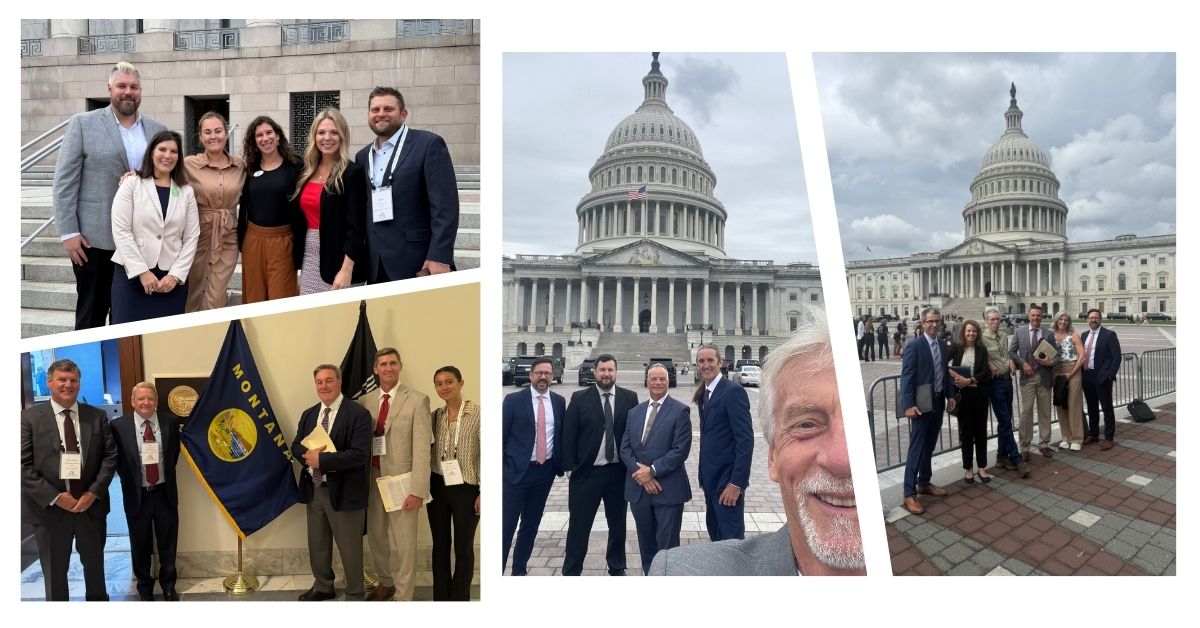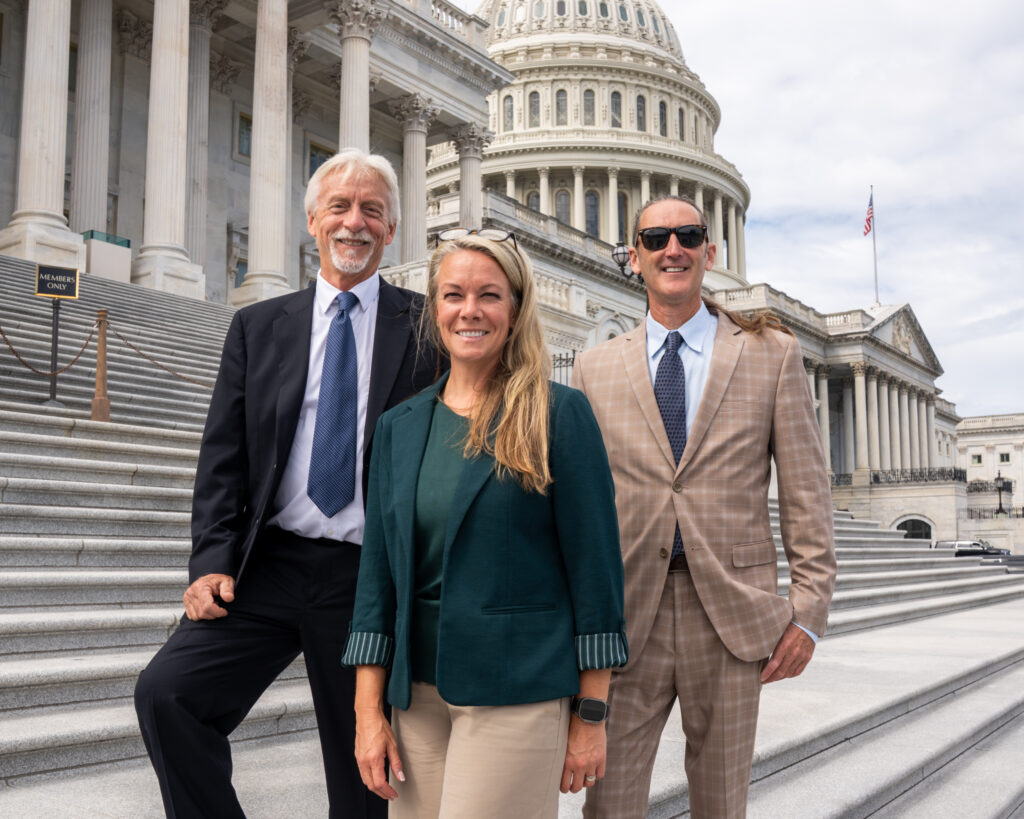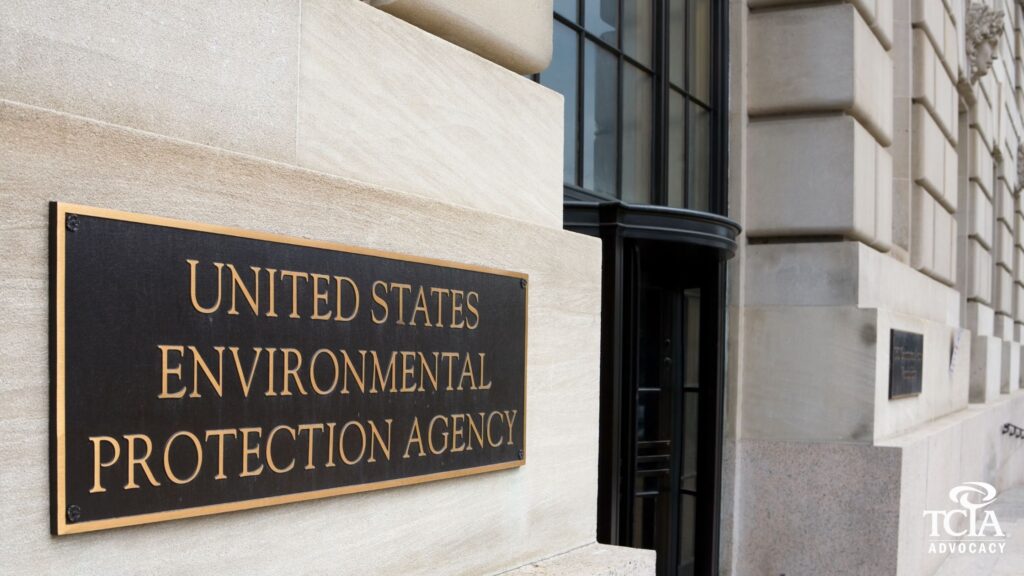
This article is by George Strout, TCIA’s Manager of Grassroots and Political Advocacy.
On Tuesday, September 16, more than 40 TCIA members and staff gathered in Washington, DC for our annual Legislation Day—an opportunity to meet with elected officials and their staff to advance key policy priorities on behalf of our members.
These priorities directly support our mission to improve safety, sustainability, and success for our members. Many of the challenges our industry faces are shaped by legislation—making our engagement in the process essential. Advocacy & regulatory compliance is one of TCIA’s six domains that are critical to the success of any tree care business.
Legislation Day gives us a chance to present our concerns and solutions directly to policymakers. These meetings aren’t debates—they’re conversations aimed at building understanding and support. In today’s polarized environment, that’s no small task.
We begin by finding common ground, however narrow. A statement like, “I think we can all agree that everyone has a right to be safe on the job,” reflects a shared value and opens the door to meaningful dialogue. It helps us frame the issue and offer practical solutions.
Legislation Day is also important because face-to-face meetings matter. Hearing someone’s voice humanizes the conversation and fosters genuine engagement—something often lost in today’s online political discourse, which tends to provoke rather than connect.
The members and TCIA staff formed six teams, each participating in 6–7 meetings throughout the day. In total, we held 41 in-person discussions to share our priorities and expectations.
What We Told Congress
This Legislation Day, we focused on our four current legislative priority asks:
- Adoption of a tree care-specific OSHA safety standard,
- Inclusion of wildfire risk reduction measures in the Fix Our Forests Act,
- Support for state-level pesticide preemption in the 2025 Farm Bill, and
- Enactment of immigration reforms to stabilize the tree care workforce.
To help tell our story and engage policymakers, we prepared talking points for each issue. Each talking point set follows the basic conversation construction model: introduction, describe the threat, tell your story, share the solution, make the ask.
These are the highlights of our 2025 Legislation Day messaging.
Tree Care Industry Calls for Safety, Wildfire Prevention, Invasive Species Protections, and Workforce Solutions
Workplace Safety Must Be a Priority
Tree care is one of the most dangerous professions, with fatality rates 30 times the national average. Yet OSHA still applies safety standards designed for other industries, creating confusion, unnecessary costs, and leaving critical hazards unaddressed. The ANSI Z133 standard—developed through decades of industry consensus—is the right model. OSHA should adopt it to provide clear, consistent rules that save lives and support small businesses.
TCIA has trained nearly 3,000 Certified Treecare Safety Professionals and built programs to help even small companies implement strong safety systems. Despite bipartisan support from Congress dating back to 1998 and a strong recommendation from OSHA’s SBREFA panel in 2020, progress has stalled. A dedicated OSHA standard would reduce fatalities, improve training, and eliminate arbitrary enforcement.
Federal Standards Are Key to Wildfire Prevention
Tree care professionals are on the front lines of wildfire mitigation—clearing hazardous trees near power lines, maintaining rights-of-way, and protecting communities. Contractors handle most of the work across 90,000 miles of electrical corridors on 640 million acres of federal land, much of it at high wildfire risk.
Without a federal standard of care, insurers view our work as unpredictable and high-risk, driving up premiums and pushing qualified contractors out of the field. Legal ambiguity adds to the problem, with contractors sometimes pulled into wildfire lawsuits despite not causing the ignition. Congress can fix this by establishing a national framework based on ANSI A300 standards and clarifying contractor roles under FLPMA. Including these reforms in the Fix Our Forests Act (S. 1462) would reduce ignition risk, stabilize insurance markets, and preserve workforce capacity.
Protecting Trees from Invasive Species Requires Regulatory Clarity
Healthy trees are vital to every community, but invasive pests like the Emerald Ash Borer threaten our urban and rural canopies. Tree care professionals need access to science-based treatments, yet a patchwork of local pesticide bans creates confusion and delays.
State agencies and the EPA already have the expertise to regulate pesticide use safely. Tree care professionals are licensed, trained, and use targeted methods like trunk injections to minimize environmental impact. Local overreach risks greater tree loss, higher costs, and increased hazards like falling trees and wildfires. Congress should use the 2025 Farm Bill to affirm state-level pesticide preemption under FIFRA, ensuring consistent, science-based regulation across jurisdictions.
Practical Immigration Solutions Are Essential for Workforce Stability
Tree care is rewarding but physically demanding and dangerous. The domestic labor market alone hasn’t met our workforce needs, threatening public safety and business viability. Our crews maintain trees near homes, businesses, and power lines—work that’s critical to preventing storm damage, wildfires, and utility outages.
The H-2B visa cap of 66,000 annually is far too low, leaving companies unable to meet contracts or invest in equipment and full-time U.S. staff. Congress should preserve the “Certified Seasonal Employer” exemption in the FY26 DHS Appropriations Bill to give responsible employers the certainty they need.
Many companies also rely on long-time employees under Temporary Protected Status (TPS). Sudden policy changes without clear DHS guidance disrupt operations and jeopardize public safety. Employers need transition time and clarity when TPS or work authorization policies shift.
We support the Essential Workers for Economic Advancement Act (EWEA), which would create a new H-2C visa program capped at 85,000 annually providing legal, temporary workforce pathways while strengthening system integrity. We also support border security and a fair E-Verify system that protects good-faith employers.
The Ask: Congressional Action Is Urgent
By advancing targeted reforms—adopting a tree care safety standard, establishing wildfire mitigation protocols, affirming science-based pesticide regulation, and modernizing immigration policy—Congress can protect communities, support small businesses, and strengthen America’s tree care workforce.
As we continue working toward our shared priorities, participating in the legislative process remains one of the most powerful ways we can make a difference. By leveraging every advocacy tool available to us – including Legislative Day – we amplify our collective voice and strengthen our impact. It’s essential that each of us understands the issues, knows how to speak about them confidently, and feels empowered to join the conversation.
Advocacy is not a one-time event; it’s an ongoing commitment, and I promise to keep you informed, engaged, and invited to participate in every step of the way, now and into the future.
Your Voice in Washington. TCIA advocates Washington on behalf of all our members, and the tree care industry at large. We work to ensure lawmakers understand the unique challenges and risks of our profession, while pushing for industry-specific legislation that supports safety, growth, and operational success. To learn more about the issues we’re discussing, or how we make your voices are heard in Washington, visit advocacy.tcia.org.


